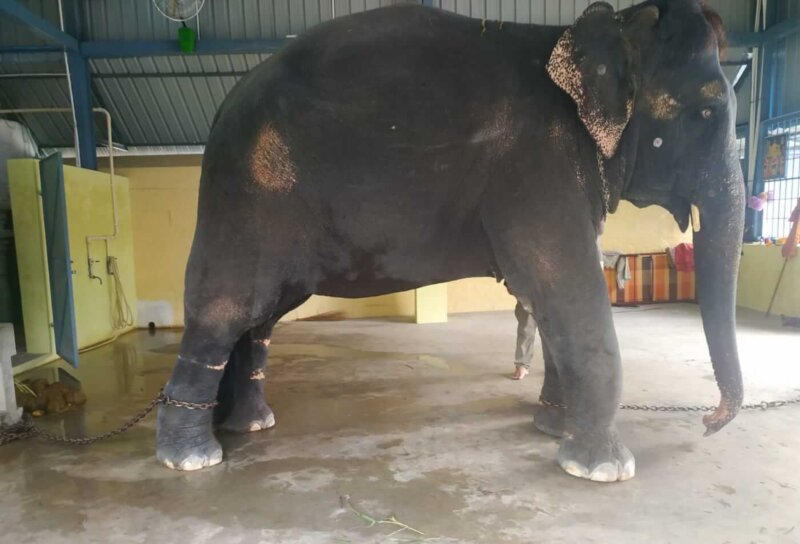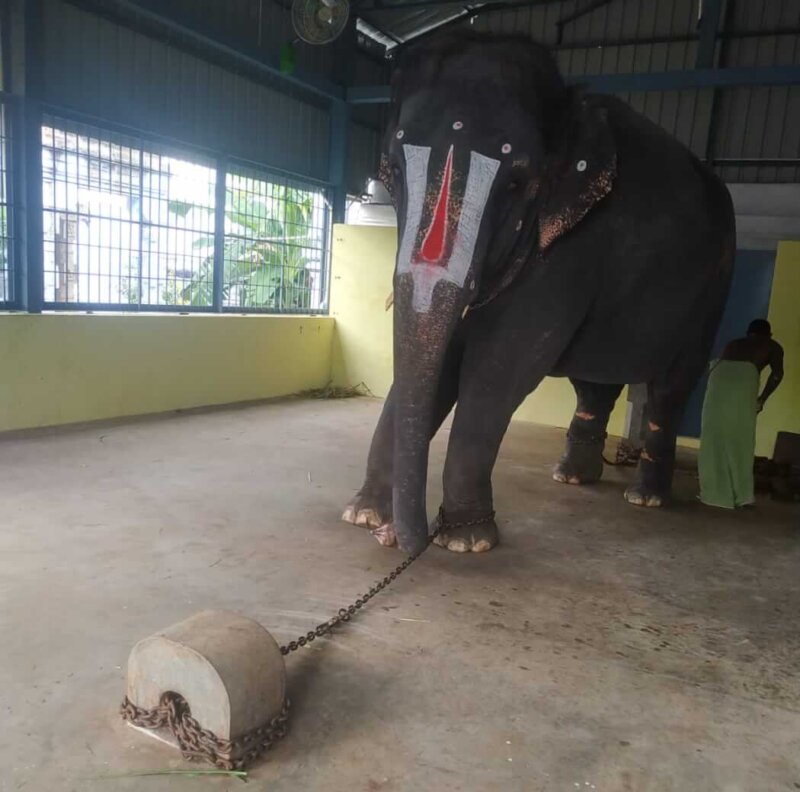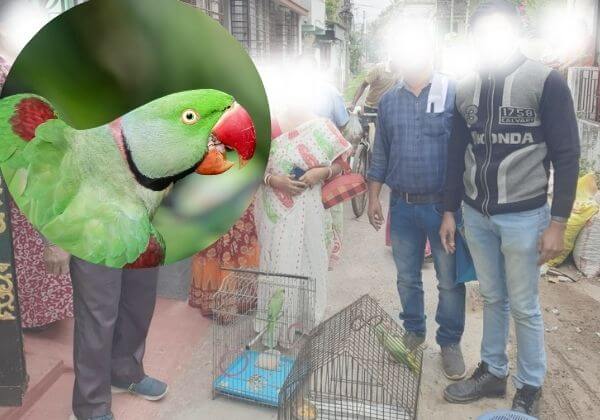Tamil Nadu Police and Forest Department File Cases on Abuse of Elephant Jeymalyatha Following PETA India, Animal Welfare Board Intervention
Following PETA India’s complaint to the Animal Welfare Board of India (AWBI) and Virudhunagar police station, a first information report (FIR) under sections 289 and 429 of the Indian Penal Code, 1860, and Section 11(1)(a) of the Prevention of Cruelty to Animals Act, 1960, was filed against the mahout of the temple over the cruel beating of the elephant Jeymalyatha, which was caught on camera twice. The AWBI also asked the Tamil Nadu principal chief conservator of forest and chief wildlife warden to take action, after which it is reported that a wildlife offence report has been filed, but a copy of it is still awaited. In two separate viral videos, mahouts can be seen beating Jeymalyatha. In the latest one, apparently taken on the premises of the Srivilliputhur Nachiyar Thirukovil temple, she can be heard screaming in pain.
Respected @mkyadava, @supriyasahuias, @mkstalin & @CMOfficeAssam, in another video of elephant Jeymalyatha she is screaming while beaten.
Pls rescue her from illegal custody by Srivilliputhur Nachiyar Thirukovil temple, & send to sanctuary: https://t.co/MWpSBIX7aQ
📹 @abpnadu pic.twitter.com/8pBkHPpPgn
— PETA India (@PetaIndia) June 28, 2022
PETA India’s team met Jeymalyatha recently at the shed where she is kept in isolation, chained, and forced to stand in her own dung and urine. She has developed stereotypic behaviour due to the frustration of captivity and lives in constant fear of being poked with ankuses, two of which were discovered on site.
The Srivilliputhur Nachiyar Thirukovil temple has reportedly kept Jeymalyatha in captivity illegally for more than a decade, as she was never returned to the Assam forest department. The first video, which surfaced in February 2021, showed Jeymalyatha being tied to a tree and beaten at a rejuvenation camp that led to the suspension of the two mahouts involved. Despite these actions, the second video shows another mahout severely beating the helpless elephant.
Noting the exploitation of elephants in captivity, the Honourable Madras High Court has directed the Tamil Nadu state government to form a policy on the ownership of elephants. The court stated that all elephants – privately owned or owned by a temple – must come under the care of the forest department and that future private ownership of elephants must be prohibited. This decision comes as public opinion, both nationally and internationally, becomes increasingly opposed to elephant captivity.
TWEET NOW










